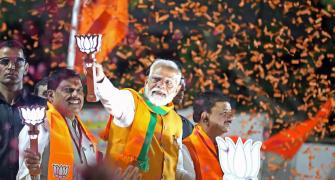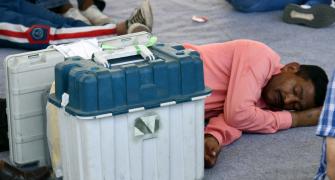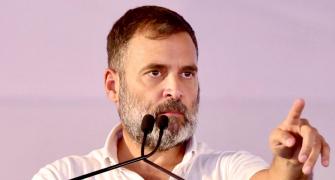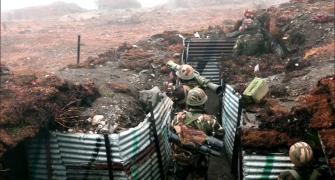With Indian industry feeling strongly that last Thursday's nationwide strike had dented the country's image as an investment destination, the Left parties said such shutdowns would not affect economic growth, much less scare investors away.
Reacting to strong criticism from industries and chambers of business, the Left parties brushed aside figures circulating about losses incurred by India Inc, and sought to counter claims that such work stoppages would spurn investors.
"It is absurd to say strikes scare away investors. India cannot be ignored. . . they (investors) know that there is a big market out here," said CPI's national secretary D Raja.
"Everytime there is workers' unrest like the incident in Gurgaon a few months back or the strike last week, the industry tries to scare the Left parties by raising the bogey of investors. . . they cannot scare us," he said.
Tapan Sen, a leader of Centre of Indian Trade Unions which was one of the unions that called for the strike, noted: "Striking workers hijacked a ship in France, one of the largest FDI recipients. Even that has not stopped new investment flows into that country. So, saying that strikes would spurn investments is a bogus proposition."
According to the World Economic Forum report, India received $5.33 billion of FDI in 2004. The government is targeting to surpass this figure in 2005.
Earlier, industry chambers had expressed disappointment at the strike, saying it would send a negative signal to investors at a time when Indian economy was integrating with the global economy and the capital markets were booming.
About 20,000 airport employees participated in the strike, which upset travel plans of an estimated 50,000 air passengers.
"The importance and criticality of civil aviation and India's airport infrastructure could be gauged from the fact that over 95 per cent of India's foreign tourists arrive in India by air; over 40 per cent of India's export and imports, by value, are carried by air; and 100 per cent of those seeking to invest in India and visiting India for purposes of commerce and industry, do so using air services," CII President Y C Deveshwar said.
Assocham Secretary General D S Rawat agreed that the financial impact of last week's strike would be minimal, but wanted political parties to rise above narrow political gains and arrive at a consensus on economic reforms.
"Once there is consensus on reforms, the government should move only in that direction," he said.
On the industry's contention that workers action would have a negative impact on investment and also the capital market, Raja said soaring share prices were not the real indicators of the economy's health.
"Can they (industrialists) explain why the stocks crashed when the UPA government took over and how they are now soaring despite strikes against privatisation," he asked.
On the industry's contention that labour unrest like the one in a multinational two-wheeler company in Gurgaon was a dampener as far as attracting FDI was concerned, CPI(M) leader Nilotpal Basu pointed out that there were many investors, who are working in Left-ruled states without any problems.
"It (problems) depends on companies policies. If some company is not complying with labour laws or any other law for that matter, it creates tension," he said.
Revolutionary Socialist Party leader Abani Roy said the Left was not against reforms, but only wanted to protect the interests of labourers.
In fact, the strike last week was supported even by unions that were not affiliated to the Left, Roy noted, adding that "industrialists support police lathi-charging their workers, they want hire and fire policy, but we want to protect the workers interests."
To a charge that strikes were actually not aimed at punishing the government but only at consolidating vote bank, Basu said the Left parties and trade unions were resorting to work stoppage only because the UPA government had not "redeemed" the promises made in the National Common Minimum Programme, a document that sets the agenda for governance.
On whether the Left parties would escalate their protests further if the government failed to get back on the NCMP rails, he said: "It is rather for the government to understand the implications, as the very same approach led to the previous government biting the dust."







